








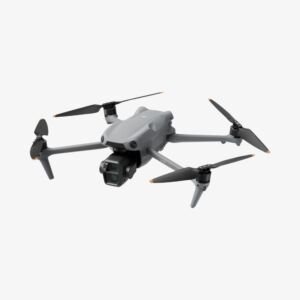

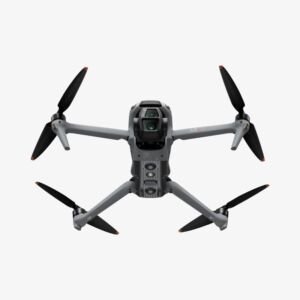





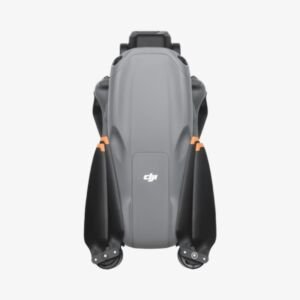
DJI Air 3S Fly More Combo (DJI RC-N3)
₹142,999.00 incl. Gst
- Takeoff weight: 724 g
- Dimensions (Folded): 214.19 × 100.63 × 89.17 mm (L × W × H)
- Dimensions (Unfolded): 266.11 × 325.47 × 106.00 mm (L × W × H)
- Max ascent speed: 10 m/s
- Max descent speed: 10 m/s
- Max horizontal speed: 21 m/s (27 m/s with 6 m/s tailwind)
- Max takeoff altitude: 6000 m
- Max flight time: 45 minutes (in ideal conditions)
- Max hovering time: 41 minutes (in ideal conditions)
- Max flight distance: 32 km (in ideal conditions)
- Max wind speed resistance: 12 m/s
- Operating temperature: -10° to 40°C (14° to 104°F)
- Internal storage: 42 GB
- GNSS support: GPS + Galileo + BeiDou
- Wide-angle camera: 1-inch CMOS, 50 MP
- Medium tele camera: 1/1.3-inch CMOS, 48 MP
- Video resolution: Up to 4K 120fps & FHD 240fps (H.265/H.264)
- Gimbal: 3-axis mechanical (tilt, roll, pan)
- Remote Controller: DJI RC N3
- Remote controller battery life: Up to 3.5 hours
- Remote controller max supported mobile device size: 180 × 86 × 10 mm
Need Help? Chat with an Expert
- 9891098328
Free Shipping & Returns
Assured Quality
Online Support 24/7
Secure Payment
- Description
- Specification
- In The Box
- FAQ's
- Reviews (0)
Description
DJI Air 3S Fly More Combo (DJI RC-N3)
The DJI Air 3S Fly More Combo with the DJI RC-N3 controller is a masterful combination of portability, advanced camera capabilities, and intelligent flight technology. Designed for creators who want to explore new horizons without being weighed down by bulky equipment, this drone delivers breathtaking aerial footage, precise handling, and exceptional flight endurance. Whether you’re crafting cinematic landscapes, tracking high-speed action, or embarking on an exploratory flight over unfamiliar terrain, the Air 3S ensures every takeoff becomes a creative opportunity and every landing feels like a victory.
Key Features of DJI Air 3S Fly More Combo (DJI RC-N3)
1. Impressive Lightweight Design with Foldable Portability
Weighing just 724 g, the DJI Air 3S is built for both convenience and performance. Its foldable arms make it compact enough to fit easily into a backpack, ensuring that carrying it on long journeys is hassle-free. Whether you’re trekking in the mountains or exploring urban landscapes, the drone’s lightweight build makes it ideal for travel while still packing in powerful features that rival heavier, bulkier models.
2. High-Precision Folded and Unfolded Dimensions
When folded, the drone measures 214.19 × 100.63 × 89.17 mm, making it small enough to store and transport effortlessly. Once unfolded to 266.11 × 325.47 × 106.00 mm, it expands into a stable flight-ready form that offers incredible aerial performance. This precise engineering ensures a perfect balance between portability and structural stability during high-speed flights or windy conditions.
3. Exceptional Speed and Smooth Flight Control
With a maximum ascent and descent speed of 10 m/s, the DJI Air 3S ensures quick altitude changes without sacrificing stability. Its horizontal flight speed reaches 21 m/s under standard conditions and can push up to 27 m/s with a tailwind of 6 m/s. This level of speed control makes it perfect for capturing fast-moving subjects or covering large distances quickly during filming missions.
4. Outstanding Flight Altitude and Wind Resistance
Capable of taking off at altitudes up to 6000 m, this drone performs impressively even in challenging high-altitude environments. It can withstand wind speeds of up to 12 m/s, ensuring steady shots even when conditions are less than ideal. This combination of altitude capability and wind resistance expands the range of possible shooting locations for creators.
5. Extended Flight Time for Long Shooting Sessions
Enjoy a maximum flight time of 45 minutes under ideal conditions, giving you plenty of time to capture breathtaking footage without frequent battery changes. Even in hovering mode, the DJI Air 3S can stay airborne for up to 41 minutes. This extended endurance makes it a reliable partner for professional shoots, inspections, and mapping tasks.
6. Impressive Range and Navigation Precision
The DJI Air 3S can cover a maximum flight distance of 32 km in ideal conditions, allowing you to explore vast areas with minimal interruptions. Its advanced GNSS support for GPS, Galileo, and BeiDou ensures pinpoint accuracy in navigation and positioning, even in areas with complex terrains or urban interference.
7. Dual-Camera System with High-Resolution Imaging
Equipped with a 1-inch CMOS 50 MP wide-angle camera and a 1/1.3-inch CMOS 48 MP medium tele camera, the DJI Air 3S delivers stunning aerial photos with rich detail and vibrant colors. The combination of wide and medium tele perspectives provides creative flexibility for cinematic storytelling, wildlife observation, or architectural photography.
8. Professional-Grade Video Recording Capabilities
Capture up to 4K video at 120fps or Full HD at 240fps in either H.265 or H.264 formats, allowing you to create both ultra-smooth slow-motion shots and crisp, high-resolution films. Whether for social media, cinematic projects, or commercial use, the DJI Air 3S ensures professional-quality footage straight from the sky.
9. Advanced 3-Axis Mechanical Gimbal for Ultra-Smooth Shots
The integrated 3-axis mechanical gimbal (tilt, roll, pan) provides stable footage even during fast maneuvers or in windy conditions. This mechanical stabilization ensures that every shot remains shake-free, giving your videos a polished, professional look without the need for heavy post-processing.
10. Smart and Long-Lasting Remote Controller
The DJI RC-N3 remote controller offers up to 3.5 hours of battery life, ensuring uninterrupted control during extended missions. It supports mobile devices up to 180 × 86 × 10 mm in size, making it compatible with most modern smartphones. This controller is ergonomically designed for comfort, even during long flights, and delivers smooth, responsive handling.
How to Use the DJI Air 3S Fly More Combo (DJI RC-N3)
-
Prepare and Unfold the Drone
Start by removing the drone from its Fly More Combo case. Unfold the arms and propellers carefully, ensuring they lock into position. Check for any dust or debris around the gimbal before turning the power on. -
Power Up and Connect the Remote
Switch on the DJI RC-N3 remote controller and then the drone. Connect your mobile device to the controller using the appropriate cable. Open the DJI Fly app, ensure your firmware is updated, and verify GNSS lock using GPS, Galileo, and BeiDou satellites. -
Choose the Right Flight Mode
Select the camera you want to use—either the 1-inch 50 MP wide-angle for landscapes or the 1/1.3-inch 48 MP medium tele for close-up shots. Adjust gimbal settings and resolution, with video options up to 4K 120fps or FHD 240fps for slow-motion effects. -
Perform a Pre-Flight Check
Ensure battery levels are sufficient, propellers are secure, and there are no obstacles nearby. Check maximum wind resistance (12 m/s) and weather conditions before takeoff. Remember, the drone can fly up to 6000 m altitude in the right conditions. -
Fly Smoothly and Land Safely
Use the 3-axis gimbal to capture stable footage, take advantage of the 45-minute flight time, and keep within the drone’s maximum range. When ready to land, choose a flat, open surface and lower the drone slowly for a safe touchdown.
How to Care for the DJI Air 3S Fly More Combo
-
Clean the Drone and Camera Regularly
Use a microfiber cloth to wipe the drone’s body and gimbal. Avoid using liquids on the camera lens—use a lens-safe cleaning solution if necessary. -
Store in a Safe and Dry Place
Keep the drone in its Fly More Combo case when not in use. Avoid high humidity and extreme temperatures, storing ideally between 5°C and 25°C. -
Maintain Battery Health
Store batteries at around 50–60% charge if not using for long periods. Avoid overcharging and deep discharging to prolong battery lifespan. -
Protect the Gimbal and Propellers
Use the included gimbal protector when transporting the drone. Replace propellers immediately if damaged, and never store with propellers folded under pressure. -
Update Firmware Regularly
Keep the drone and RC-N3 controller firmware up-to-date via the DJI Fly app for optimal performance, new features, and safety improvements.
Safety Features of the DJI Air 3S Fly More Combo
-
Advanced GNSS Navigation
Utilizes GPS, Galileo, and BeiDou systems for stable positioning and safer flights, even in environments with weak signals. -
Stable 3-Axis Gimbal
Mechanical stabilization ensures smooth, shake-free footage in varying conditions, reducing risk of unusable shots. -
Wind Resistance and High-Altitude Capability
Withstands wind speeds up to 12 m/s and operates at altitudes up to 6000 m, offering reliability in diverse terrains. -
Obstacle Avoidance Systems (if applicable)
Uses advanced sensors to detect and avoid obstacles, ensuring safer flight paths in complex environments. -
Failsafe Return-to-Home (RTH)
Automatically returns to the takeoff point if connection is lost or battery is critically low, protecting both drone and data.
Why Choose the DJI Air 3S Fly More Combo (DJI RC-N3)
-
Powerful Dual-Camera System
With a 1-inch 50 MP wide-angle and 1/1.3-inch 48 MP medium tele camera, you can shoot cinematic landscapes or zoom into detailed subjects without changing lenses. -
Extended Flight Performance
Enjoy up to 45 minutes of flight time and 41 minutes of hovering, giving you more time in the air and less time swapping batteries. -
High-Speed and Agile Flight
Reaches horizontal speeds of 21 m/s (27 m/s with tailwind) and ascends/descends at 10 m/s for fast, efficient operations. -
Ample Storage and Video Quality
42 GB internal storage plus microSD support, recording in up to 4K 120fps or FHD 240fps—ideal for creators who want cinematic slow-motion. -
Professional Control with DJI RC-N3
The included remote offers up to 3.5 hours of battery life, supports large mobile devices, and delivers precise, responsive control over every flight.
Aircraft
| Specification | Details |
|---|---|
| Takeoff Weight | 724 g |
| Dimensions | Folded (without propellers): 214.19 × 100.63 × 89.17 mm (L × W × H) Unfolded (without propellers): 266.11 × 325.47 × 106.00 mm (L × W × H) |
| Max Ascent Speed | 10 m/s |
| Max Descent Speed | 10 m/s |
| Max Horizontal Speed | At sea level, in windless conditions: 21 m/s*
At sea level, with 6 m/s tailwind, while flying in the same direction as the wind: 27 m/s* *Measured in a wind tunnel test environment when taking off from an altitude of 0 meter and ascending vertically to a height of 1.5 meters above the ground in Sport mode, and is for reference only. Always pay attention to reminders on the camera view during your flight. |
| Max Takeoff Altitude | 6000 m |
| Max Flight Time | 45 minutes Measured by DJI Air 3S flying forward at a constant speed of 32.4 kph in a windless environment at sea level, with Obstacle Avoidance Action set to Brake, in photo mode, and from 100% battery level until 0%. Data is for reference only. Always pay attention to reminders in the app during your flight. |
| Max Hovering Time | 41 minutes Measured by DJI Air 3S hovering in a windless environment at sea level, with Obstacle Avoidance Action set to Brake, in photo mode, and from 100% battery level until 0%. Data is for reference only. Always pay attention to reminders in the app during your flight. |
| Max Flight Distance | 32 km Measured by DJI Air 3S flying forward at a constant speed of 48.6 kph in a windless environment at sea level, with Obstacle Avoidance Action set to Brake, in photo mode, and from 100% battery level until 0%. Data is for reference only. Always pay attention to reminders in the app during your flight. |
| Max Wind Speed Resistance | 12 m/s |
| Max Pitch Angle | 36° |
| Operating Temperature | -10° to 40° C (14° to 104° F) |
| Global Navigation Satellite System | GPS + Galileo + BeiDou |
| Hovering Accuracy Range | Vertical: ±0.1 m (with vision positioning) / ±0.5 m (with satellite positioning) Horizontal: ±0.3 m (with vision positioning) / ±0.5 m (with satellite positioning) |
| Internal Storage | 42 GB |
| Class | C1 (EU) |
Camera
| Specification | Details |
|---|---|
| Image Sensor | Wide-Angle Camera: 1-inch CMOS, 50MP Effective Pixels Medium Tele Camera: 1/1.3-inch CMOS, 48MP Effective Pixels |
| Lens | Wide-Angle Camera: FOV: 84° Format Equivalent: 24 mm Aperture: f/1.8 Focus: 0.5 m to ∞ Medium Tele Camera: |
| ISO Range | Video Normal: 100-12800 (Normal) / 100-3200 (D-Log M) / 100-3200 (HLG) Slow Motion: 100-6400 (Normal) / 100-3200 (D-Log M) / 100-3200 (HLG) Photo |
| Shutter Speed | Wide-Angle Camera: 12MP Photo: 1/8000-2 s (2.5-8 s for simulated long exposure) 50MP Photo: 1/8000-2 s Medium Tele Camera: |
| Max Image Size | Wide-Angle Camera: 8192×6144 Medium Tele Camera: 8064×6048 |
| Still Photography Modes | Wide-Angle Camera: Single Shot: 12 MP and 50 MP Burst Shooting: 12 MP, 3/5/7 frames; 50 MP, 3/5 frames Automatic Exposure Bracketing (AEB): 12 MP, 3/5/7 frames; 50 MP, 3/5 frames at 0.7 EV step Timed: 12 MP, 2/3/5/7/10/15/20/30/60 s; 50 MP, 5/7/10/15/20/30/60 s Medium Tele Camera: |
| Photo Format | JPEG/DNG (RAW) |
| Video Resolution | Wide-Angle Camera / Medium Tele Camera: H.264/H.265 4K: 3840×2160 @ 24/25/30/48/50/60/120* fps FHD: 1920×1080 @ 24/25/30/48/50/60/120*/240* fps 2.7K Vertical Shooting: 1512×2688 @ 24/25/30/48/50/60 fps *Recording frame rates. The corresponding video plays as slow motion. Slow-motion videos and 4K video recordings only support H.265 encoding. |
| Video Format | MP4 (MPEG-4 AVC/H.264, HEVC/H.265) |
| Max Video Bitrate | H.264/H.265: 130 Mbps*
*When shooting 4K/120fps video in D-Log M mode with the DJI Air 3S, the bitrate can reach 130 Mbps, corresponding to a video stream frame rate of 120fps. Since slow-motion files are encapsulated at 30fps, the displayed length is four times the recording duration, and the parsed file bitrate is about one-fourth of the original encoding bitrate. |
| Supported File System | exFAT |
| Color Mode and Sampling Method | Wide-Angle / Medium Tele Camera: Normal (FHD/2.7K): 8-bit 4:2:0 (H.264) Normal (FHD/2.7K): 10-bit 4:2:0 (H.265) HLG/D-Log M (FHD/2.7K): 10-bit 4:2:0 (H.264/H.265) Normal/HLG/D-Log M (4K): 10-bit 4:2:0 (H.265) |
| Digital Zoom | Wide-Angle Camera: 1-2.9x Medium Tele Camera: 3-9x |
Gimbal
| Specification | Details |
|---|---|
| Stabilization | 3-axis mechanical gimbal (tilt, roll, pan) |
| Mechanical Range | Tilt: -135° to 70° Roll: -50° to 50° Pan: -27° to 27° |
| Controllable Range | Tilt: -90° to 60° Pan: -5° to 5° |
| Max Control Speed (Tilt) | 100°/s |
| Angular Vibration Range | ±0.0037° |
Sensing
| Specification | Details |
|---|---|
| Sensing Type | Omnidirectional binocular vision system, supplemented with forward-facing LiDAR and an infrared sensor at the bottom of the aircraft |
| Forward | Measurement Range: 0.5-18 m Detection Range: 0.5-200 m Effective Sensing Speed: Flight Speed ≤ 15 m/s FOV: Horizontal 90°, Vertical 72° |
| Backward | Measurement Range: 0.5-18 m Effective Sensing Speed: Flight Speed ≤ 14 m/s FOV: Horizontal 90°, Vertical 72° |
| Lateral | Measurement Range: 0.5-30 m Effective Sensing Speed: Flight Speed ≤ 14 m/s FOV: Horizontal 90°, Vertical 72° |
| Upward | Measurement Range: 0.5-18 m Effective Sensing Speed: Flight Speed ≤ 6 m/s FOV: Front and Back 72°, Left and Right 90° |
| Downward | Measurement Range: 0.3-14 m Effective Sensing Speed: Flight Speed ≤ 6 m/s FOV: Front and Back 106°, Left and Right 90° |
| Operating Environment | Forward, Backward, Left, Right, and Upward: Surfaces with discernible patterns and adequate lighting (lux > 1) Downward: Surfaces with discernible patterns, diffuse reflectivity > 20% (e.g., walls, trees, people), and adequate lighting (lux > 1) |
| 3D Infrared Sensor | Forward-Facing LiDAR: Measurement Range (nighttime): 0.5-25 m (reflectivity > 10%) FOV: Up and Down 60°, Left and Right 60° Downward-Facing Infrared Sensor: |
Video Transmission
| Specification | Details |
|---|---|
| Video Transmission System | O4 |
| Live View Quality | Remote Controller: 1080p/30fps, 1080p/60fps |
| Operating Frequency | 2.4000-2.4835 GHz 5.170-5.250 GHz 5.725-5.850 GHz Operating frequency allowed varies among countries and regions. Refer to local laws and regulations for more information. |
| Transmitter Power (EIRP) | 2.4 GHz: < 33 dBm (FCC), < 20 dBm (CE/SRRC/MIC) 5.1 GHz: < 23 dBm (CE) 5.8 GHz: < 33 dBm (FCC), < 30 dBm (SRRC), < 14 dBm (CE) |
| Max Transmission Distance (unobstructed, free of interference) | FCC: 20 km CE: 10 km SRRC: 10 km MIC: 10 km Measured in an unobstructed outdoor environment free of interference. Data shows the farthest one-way communication range under each standard. |
| Max Transmission Distance (unobstructed, with interference) | Strong Interference: Urban landscape, approx. 1.5-4 km Medium Interference: Suburban landscape, approx. 4-10 km Low Interference: Suburb/Seaside, approx. 10-20 km Measured under FCC standard in unobstructed environments with typical interference. |
| Max Transmission Distance (obstructed, with interference) | Low Interference & Obstructed by Buildings: Approx. 0-0.5 km Low Interference & Obstructed by Trees: Approx. 0.5-3 km Measured under FCC standard in obstructed environments with low interference. |
| Max Download Speed | O4: 10 MB/s (with DJI RC-N3) / 10 MB/s (with DJI RC 2) Wi-Fi 5: 30 MB/s* Measured in a lab environment with little interference in regions supporting both 2.4 GHz and 5.8 GHz. |
| Lowest Latency | Aircraft + Remote Controller: Approx. 120 ms Varies with the environment and the mobile device. |
| Antenna | 6 antennas, 2T4R |
Wi-Fi
| Specification | Details |
|---|---|
| Protocol | 802.11 a/b/g/n/ac |
| Operating Frequency | 2.400-2.4835 GHz 5.725-5.850 GHz |
| Transmitter Power (EIRP) | 2.4 GHz: < 20 dBm (FCC/CE/SRRC/MIC) 5.8 GHz: < 20 dBm (FCC/SRRC), < 14 dBm (CE) |
Bluetooth
| Specification | Details |
|---|---|
| Protocol | Bluetooth 5.2 |
| Operating Frequency | 2.400-2.4835 GHz |
| Transmitter Power (EIRP) | < 10 dBm |
Battery
| Specification | Details |
|---|---|
| Capacity | 4276 mAh |
| Weight | Approx. 247 g |
| Nominal Voltage | 14.6 V |
| Max Charging Voltage | 17.2 V |
| Type | Li-ion 4S |
| Energy | 62.5 Wh |
| Charging Temperature | 5° to 40° C (41° to 104° F) |
| Charging Time | Approx. 80 minutes (with DJI 65W Portable Charger) Approx. 60 minutes (with DJI 100W USB-C Power Adapter and Battery Charging Hub) |
Charger
| Specification | Details |
|---|---|
| Input | |
| DJI 65W Portable Charger | 100-240 V (AC), 50-60 Hz, 2 A |
| DJI 100W USB-C Power Adapter | 100-240 V (AC), 50-60 Hz, 2.5 A |
| Output | |
| DJI 65W Portable Charger – USB-C | 5 V, 5 A 9 V, 5 A 12 V, 5 A 15 V, 4.3 A 20 V, 3.25 A 5-20 V, 3.25 A |
| DJI 65W Portable Charger – USB-A | 5 V, 2 A |
| DJI 100W USB-C Power Adapter | Max 100 W (total) |
| Output When Both Ports Used | Max output power of one port is 82 W, charger will dynamically allocate the output power of the two ports according to the power load |
| Rated Power | |
| DJI 65W Portable Charger | 65 W |
| DJI 100W USB-C Power Adapter | 100 W |
Battery Charging Hub
| Specification | Details |
|---|---|
| Input | USB-C: 5–20 V, max 5 A |
| Output (Power Accumulation) | Battery Port: 12–17.2 V, 3.5 A |
| Output (Charging) | Battery Port: 12–17.2 V, max 5 A |
| Output (USB) | USB-C: • 5 V, 3 A • 9 V, 5 A • 12 V, 5 A • 15 V, 5 A • 20 V, 4.1 A |
| Charging Type | Three batteries charged in sequence |
| Compatibility | DJI Air 3 Intelligent Flight Battery DJI Air 3S Intelligent Flight Battery |
Car Charger
| Specification | Details |
|---|---|
| Input (Car Power) | 12.7–16 V, 6.5 A, rated voltage 14 V (DC) |
| Output (USB-C) | • 5 V, 5 A • 9 V, 5 A • 12 V, 5 A • 15 V, 4.3 A • 20 V, 3.25 A • 5–20 V, 3.25 A |
| Output (USB-A) | 5 V, 2 A |
| Rated Power | 65 W |
| Charging Temperature | 5° to 40° C (41° to 104° F) |
Storage
| Brand & Model | Capacity | Speed Class | Type |
|---|---|---|---|
| Lexar 1066x | 64GB | V30 U3 A2 | microSDXC |
| Lexar 1066x | 128GB | V30 U3 A2 | microSDXC |
| Lexar 1066x | 256GB | V30 U3 A2 | microSDXC |
| Lexar 1066x | 512GB | V30 U3 A2 | microSDXC |
| Kingston Canvas GO! Plus | 64GB | V30 U3 A2 | microSDXC |
| Kingston Canvas GO! Plus | 128GB | V30 U3 A2 | microSDXC |
| Kingston Canvas GO! Plus | 256GB | V30 U3 A2 | microSDXC |
| Kingston Canvas GO! Plus | 512GB | V30 U3 A2 | microSDXC |
DJI RC-N3 Remote Controller
| Specification | Details |
|---|---|
| Max Operating Time | Without Charging Any Mobile Device: 3.5 hours When Charging a Mobile Device: 1.5 hours |
| Max Supported Mobile Device Size | 180×86×10 mm (L×W×H) |
| Operating Temperature | -10° to 40° C (14° to 104° F) |
| Charging Temperature | 5° to 40° C (41° to 104° F) |
| Charging Time | 2 hours |
| Charging Type | It is recommended to use a 5V/2A charger. |
| Battery Capacity | 9.36 Wh (3.6 V, 2600 mAh) |
| Weight | Approx. 320 g |
| Dimensions | 104.2×150×45.2 mm (L×W×H) |
| Supported Mobile Device Port Type | Lightning, USB-C, Micro-USB <small>Using a mobile device with a Micro-USB port requires the DJI RC-N Series RC Cable (Standard Micro USB Connector), which is sold separately.</small> |
| Video Transmission Operating Frequency | 2.4000-2.4835 GHz 5.170-5.250 GHz 5.725-5.850 GHz <small>Operating frequency allowed varies among countries and regions. Refer to local laws and regulations for more information.</small> |
| Video Transmission Transmitter Power (EIRP) | 2.4 GHz: < 33 dBm (FCC) < 20 dBm (CE/SRRC/MIC) 5.1 GHz: 5.8 GHz: |
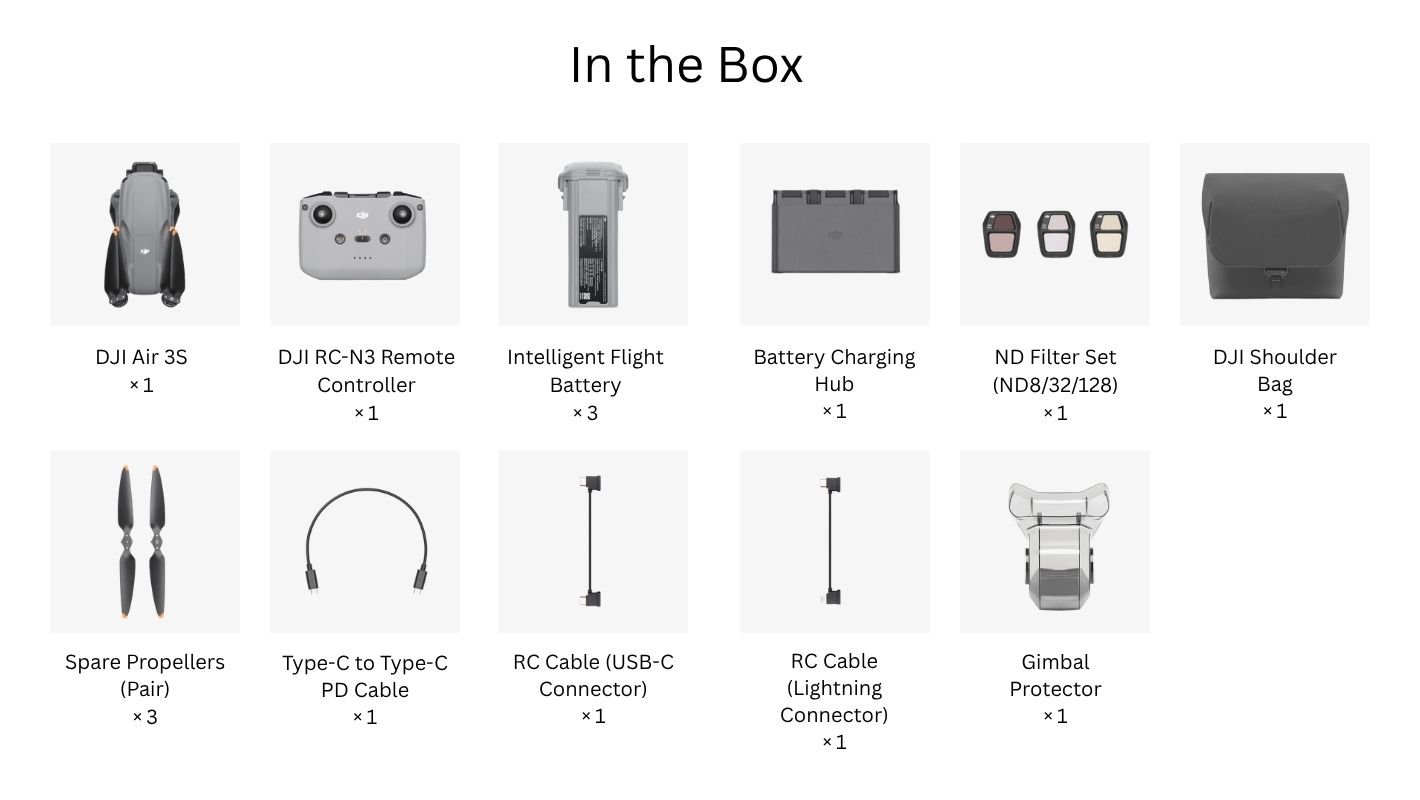
Compared with DJI Air 3, what are the main upgrades in DJI Air 3S?
DJI Air 3S features comprehensive upgrades to the camera system, vision sensing system, intelligent functions, and video transmission system. The main improvements include:
-
The DJI Air 3S now comes with an upgraded 1-inch CMOS main camera, powered by a new image-processing platform, delivering a video dynamic range of up to 14 stops*. It supports 4K/120fps video recording**. Both its wide-angle and medium telephoto cameras feature the new Free Panorama function, allowing flexible shooting range options.
-
It introduces a forward-facing LiDAR sensor, enabling nightscape omnidirectional obstacle sensing*** and the latest Smart RTH. This allows it to actively detect and avoid obstacles, including buildings on both flight and return paths, ensuring safer nighttime urban shooting. The drone can also memorize flight paths in well-lit environments, allowing for fast takeoffs and safe returns even without satellite signals****.
-
The DJI Air 3S is equipped with the O4 video transmission system, providing stronger signal stability, improved anti-interference performance, and enhanced image quality.
* 14 stops of dynamic range are available for video in Auto mode but not for vertical or slow-motion recording.
** 4K/120fps recording is supported only in Slow Motion mode.
*** Effective only on surfaces with visible textures and in lighting above 1 lux. See DJI’s official site or the product manual for details.
**** Effective only on surfaces with visible textures and in lighting above 10 lux. See DJI’s official site or the product manual for details.
How do I activate DJI Air 3S?
With DJI RC-N3:
Connect your internet-enabled mobile device to the remote controller, then pair it with the DJI Air 3S through the DJI Fly app. Follow the on-screen instructions in the app to complete activation.
With DJI RC 2:
When using DJI RC 2 for the first time, connect to the internet via Wi-Fi or a smartphone hotspot. Follow the activation prompts in the DJI Fly app. Once the remote is activated, connect it to the DJI Air 3S via the DJI Fly app and follow the instructions to activate the aircraft.
Is DJI Air 3S waterproof?
No. Avoid any contact with water, as it may cause damage.
If it starts raining during flight, return and land immediately, then allow the drone to dry completely inside and out before the next use.
What app should I install before using DJI Air 3S?
DJI Air 3S works exclusively with the DJI Fly app. You can download the latest version from the DJI Air 3S Downloads section on DJI’s official website.
If you are using DJI RC 2 as the controller, the DJI Fly app comes pre-installed.
What should I know about the forward-facing LiDAR?
-
Dust or debris on the LiDAR may cause false obstacle detection. Keep it clean for accurate sensing.
-
LiDAR operates automatically in moderately lit conditions but may not work correctly in bright lighting. Always monitor ambient light to ensure safe flight.
What are the advantages of the forward-facing LiDAR?
-
Improved Nighttime Obstacle Detection: Even in extremely dark conditions below 1 lux, where the vision system cannot operate, the LiDAR can still sense forward obstacles, enabling the drone to stop in time.
-
Safer Nighttime RTH: During return-to-home flights at night, if the vision system is ineffective, LiDAR helps detect forward obstacles and ascend to avoid them*, improving safety during the return journey.
* If the drone reaches its maximum altitude limit while avoiding obstacles, it will hover at that height.
Does DJI Air 3S support vertical shooting?
Yes. Both the wide-angle camera and the medium telephoto camera support vertical shooting in a 9:16 aspect ratio, with a maximum video resolution of 2.7K/60fps.
Compared with DJI Air 3, what are the camera module upgrades in DJI Air 3S?
The DJI Air 3S camera module has several key improvements over the DJI Air 3:
-
It now features an upgraded 1-inch CMOS primary camera and a new image-processing platform for enhanced overall image quality, delivering a video dynamic range of up to 14 stops*.
-
It supports slow-motion video recording at both 1080p/240fps and 4K/120fps**.
-
A new Subject Focusing function has been added, enabling quick and intelligent subject recognition with continuous and precise focus tracking.
-
Both the wide-angle and medium telephoto cameras now include the Free Panorama feature, allowing flexible selection of shooting ranges.
-
The next-generation intelligent algorithms greatly improve still photo quality.
-
The maximum video ISO limits have been increased: in normal color mode, the maximum ISO rises from 6,400 to 12,800***, while in D-Log M and HLG modes, it increases from 1,600 to 3,200.
* 14 stops of dynamic range are achievable in Auto video mode but not in vertical or slow-motion recording.
** Available only in Slow Motion mode.
*** The maximum ISO for slow-motion recording remains at 6,400.
How should I adjust the remote controller antennas?
For the best transmission performance, keep the antennas pointed toward the aircraft during flight.
Which remote controllers are compatible with DJI Air 3S?
DJI Air 3S currently works with three remote controllers: DJI RC-N3, DJI RC-N2, and DJI RC 2.
Does DJI RC 2 support quick charging?
Yes. Its USB-C port supports up to 9V/3A power input when used with a compatible 9V/3A charger. The battery can be fully charged in as little as 1.5 hours.
How can I customize the button functions on DJI RC 2?
In the DJI Fly app, you can assign custom functions to the C1 and C2 buttons for more efficient control.
Can I install third-party apps on DJI RC 2?
No, third-party app installation is not supported.
Does the maximum transmission distance of the O4 video transmission system change based on environmental interference?
Yes. The wireless interference level varies in different environments, which affects the maximum transmission distance.
Unobstructed:
-
Strong Interference (Urban areas): approx. 1.5–4 km
-
Medium Interference (Suburban areas): approx. 4–10 km
-
Low Interference (Open suburbs or seaside): approx. 10–20 km
Obstructed:
-
Low Interference with building obstruction: approx. 0–0.5 km
-
Low Interference with tree obstruction: approx. 0.5–3 km
Distances are measured under FCC standards in typical obstructed or unobstructed environments with standard interference. These figures are for reference only and do not guarantee actual transmission performance.
How do I update the firmware of DJI Air 3S?
When the aircraft is connected to the remote controller and a new firmware version is available, the DJI Fly app will display a firmware update prompt. Simply follow the on-screen instructions to update the firmware for the aircraft, remote controller, battery, and other connected devices.
You can also perform updates using the DJI Assistant 2 (Consumer Drones Series) software on a computer. The latest version of the software is available for download from the DJI Air 3S Downloads page on DJI’s official website.
What can cause a firmware update to fail?
-
The aircraft or remote controller battery level is below 20%.
-
The aircraft or remote controller is powered off during the update. If this occurs, restart both and try again.
-
The network connection is lost during firmware download.
-
Your smartphone switches to another app during firmware download.
During the update process, the aircraft may restart several times and will automatically power off once the update is complete.
What functions does the DJI Air 3 Series Battery Charging Hub support?
The Battery Charging Hub includes two key functions: power accumulation and external discharge.
Power Accumulation: When two or more batteries are inserted, you can long-press the function button to start transferring power from lower-charged batteries to the one with the highest charge. This helps concentrate the remaining power into fewer batteries, giving you longer effective flight time.
External Discharge: The hub can output battery power through its USB-C port to devices like smartphones or tablets, with a maximum output of up to 82 watts.
Do not connect a charger, attach external devices, or insert/remove batteries while power accumulation is in progress.
Can I use other USB-C chargers to charge the battery?
Yes. However, for the best charging efficiency, it is recommended to use the DJI 65W Portable Charger, DJI 100W USB-C Power Adapter, or another USB-C charger that supports the PD protocol and has a power output of at least 60 watts.
Which DJI Air 3 accessories are compatible with DJI Air 3S?
DJI Air 3S works with the DJI Air 3 Low-Noise Propellers, DJI Air 3 Battery Charging Hub, and DJI Air 3 Intelligent Flight Battery*.
For full details, refer to the accessory compatibility list on the official DJI online store.
Note: When using the DJI Air 3 Intelligent Flight Battery, DJI Air 3S does not support the Off-State QuickTransfer feature.
Be the first to review “DJI Air 3S Fly More Combo (DJI RC-N3)” Cancel reply
Overview
DJI Air 3S Fly More Combo (DJI RC-N3)
The DJI Air 3S Fly More Combo with the DJI RC-N3 controller is a masterful combination of portability, advanced camera capabilities, and intelligent flight technology. Designed for creators who want to explore new horizons without being weighed down by bulky equipment, this drone delivers breathtaking aerial footage, precise handling, and exceptional flight endurance. Whether you’re crafting cinematic landscapes, tracking high-speed action, or embarking on an exploratory flight over unfamiliar terrain, the Air 3S ensures every takeoff becomes a creative opportunity and every landing feels like a victory.
Key Features of DJI Air 3S Fly More Combo (DJI RC-N3)
1. Impressive Lightweight Design with Foldable Portability
Weighing just 724 g, the DJI Air 3S is built for both convenience and performance. Its foldable arms make it compact enough to fit easily into a backpack, ensuring that carrying it on long journeys is hassle-free. Whether you’re trekking in the mountains or exploring urban landscapes, the drone’s lightweight build makes it ideal for travel while still packing in powerful features that rival heavier, bulkier models.
2. High-Precision Folded and Unfolded Dimensions
When folded, the drone measures 214.19 × 100.63 × 89.17 mm, making it small enough to store and transport effortlessly. Once unfolded to 266.11 × 325.47 × 106.00 mm, it expands into a stable flight-ready form that offers incredible aerial performance. This precise engineering ensures a perfect balance between portability and structural stability during high-speed flights or windy conditions.
3. Exceptional Speed and Smooth Flight Control
With a maximum ascent and descent speed of 10 m/s, the DJI Air 3S ensures quick altitude changes without sacrificing stability. Its horizontal flight speed reaches 21 m/s under standard conditions and can push up to 27 m/s with a tailwind of 6 m/s. This level of speed control makes it perfect for capturing fast-moving subjects or covering large distances quickly during filming missions.
4. Outstanding Flight Altitude and Wind Resistance
Capable of taking off at altitudes up to 6000 m, this drone performs impressively even in challenging high-altitude environments. It can withstand wind speeds of up to 12 m/s, ensuring steady shots even when conditions are less than ideal. This combination of altitude capability and wind resistance expands the range of possible shooting locations for creators.
5. Extended Flight Time for Long Shooting Sessions
Enjoy a maximum flight time of 45 minutes under ideal conditions, giving you plenty of time to capture breathtaking footage without frequent battery changes. Even in hovering mode, the DJI Air 3S can stay airborne for up to 41 minutes. This extended endurance makes it a reliable partner for professional shoots, inspections, and mapping tasks.
6. Impressive Range and Navigation Precision
The DJI Air 3S can cover a maximum flight distance of 32 km in ideal conditions, allowing you to explore vast areas with minimal interruptions. Its advanced GNSS support for GPS, Galileo, and BeiDou ensures pinpoint accuracy in navigation and positioning, even in areas with complex terrains or urban interference.
7. Dual-Camera System with High-Resolution Imaging
Equipped with a 1-inch CMOS 50 MP wide-angle camera and a 1/1.3-inch CMOS 48 MP medium tele camera, the DJI Air 3S delivers stunning aerial photos with rich detail and vibrant colors. The combination of wide and medium tele perspectives provides creative flexibility for cinematic storytelling, wildlife observation, or architectural photography.
8. Professional-Grade Video Recording Capabilities
Capture up to 4K video at 120fps or Full HD at 240fps in either H.265 or H.264 formats, allowing you to create both ultra-smooth slow-motion shots and crisp, high-resolution films. Whether for social media, cinematic projects, or commercial use, the DJI Air 3S ensures professional-quality footage straight from the sky.
9. Advanced 3-Axis Mechanical Gimbal for Ultra-Smooth Shots
The integrated 3-axis mechanical gimbal (tilt, roll, pan) provides stable footage even during fast maneuvers or in windy conditions. This mechanical stabilization ensures that every shot remains shake-free, giving your videos a polished, professional look without the need for heavy post-processing.
10. Smart and Long-Lasting Remote Controller
The DJI RC-N3 remote controller offers up to 3.5 hours of battery life, ensuring uninterrupted control during extended missions. It supports mobile devices up to 180 × 86 × 10 mm in size, making it compatible with most modern smartphones. This controller is ergonomically designed for comfort, even during long flights, and delivers smooth, responsive handling.
How to Use the DJI Air 3S Fly More Combo (DJI RC-N3)
-
Prepare and Unfold the Drone
Start by removing the drone from its Fly More Combo case. Unfold the arms and propellers carefully, ensuring they lock into position. Check for any dust or debris around the gimbal before turning the power on. -
Power Up and Connect the Remote
Switch on the DJI RC-N3 remote controller and then the drone. Connect your mobile device to the controller using the appropriate cable. Open the DJI Fly app, ensure your firmware is updated, and verify GNSS lock using GPS, Galileo, and BeiDou satellites. -
Choose the Right Flight Mode
Select the camera you want to use—either the 1-inch 50 MP wide-angle for landscapes or the 1/1.3-inch 48 MP medium tele for close-up shots. Adjust gimbal settings and resolution, with video options up to 4K 120fps or FHD 240fps for slow-motion effects. -
Perform a Pre-Flight Check
Ensure battery levels are sufficient, propellers are secure, and there are no obstacles nearby. Check maximum wind resistance (12 m/s) and weather conditions before takeoff. Remember, the drone can fly up to 6000 m altitude in the right conditions. -
Fly Smoothly and Land Safely
Use the 3-axis gimbal to capture stable footage, take advantage of the 45-minute flight time, and keep within the drone’s maximum range. When ready to land, choose a flat, open surface and lower the drone slowly for a safe touchdown.
How to Care for the DJI Air 3S Fly More Combo
-
Clean the Drone and Camera Regularly
Use a microfiber cloth to wipe the drone’s body and gimbal. Avoid using liquids on the camera lens—use a lens-safe cleaning solution if necessary. -
Store in a Safe and Dry Place
Keep the drone in its Fly More Combo case when not in use. Avoid high humidity and extreme temperatures, storing ideally between 5°C and 25°C. -
Maintain Battery Health
Store batteries at around 50–60% charge if not using for long periods. Avoid overcharging and deep discharging to prolong battery lifespan. -
Protect the Gimbal and Propellers
Use the included gimbal protector when transporting the drone. Replace propellers immediately if damaged, and never store with propellers folded under pressure. -
Update Firmware Regularly
Keep the drone and RC-N3 controller firmware up-to-date via the DJI Fly app for optimal performance, new features, and safety improvements.
Safety Features of the DJI Air 3S Fly More Combo
-
Advanced GNSS Navigation
Utilizes GPS, Galileo, and BeiDou systems for stable positioning and safer flights, even in environments with weak signals. -
Stable 3-Axis Gimbal
Mechanical stabilization ensures smooth, shake-free footage in varying conditions, reducing risk of unusable shots. -
Wind Resistance and High-Altitude Capability
Withstands wind speeds up to 12 m/s and operates at altitudes up to 6000 m, offering reliability in diverse terrains. -
Obstacle Avoidance Systems (if applicable)
Uses advanced sensors to detect and avoid obstacles, ensuring safer flight paths in complex environments. -
Failsafe Return-to-Home (RTH)
Automatically returns to the takeoff point if connection is lost or battery is critically low, protecting both drone and data.
Why Choose the DJI Air 3S Fly More Combo (DJI RC-N3)
-
Powerful Dual-Camera System
With a 1-inch 50 MP wide-angle and 1/1.3-inch 48 MP medium tele camera, you can shoot cinematic landscapes or zoom into detailed subjects without changing lenses. -
Extended Flight Performance
Enjoy up to 45 minutes of flight time and 41 minutes of hovering, giving you more time in the air and less time swapping batteries. -
High-Speed and Agile Flight
Reaches horizontal speeds of 21 m/s (27 m/s with tailwind) and ascends/descends at 10 m/s for fast, efficient operations. -
Ample Storage and Video Quality
42 GB internal storage plus microSD support, recording in up to 4K 120fps or FHD 240fps—ideal for creators who want cinematic slow-motion. -
Professional Control with DJI RC-N3
The included remote offers up to 3.5 hours of battery life, supports large mobile devices, and delivers precise, responsive control over every flight.
Details
Reviews
There are no reviews yet.





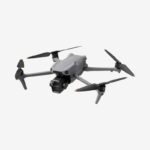
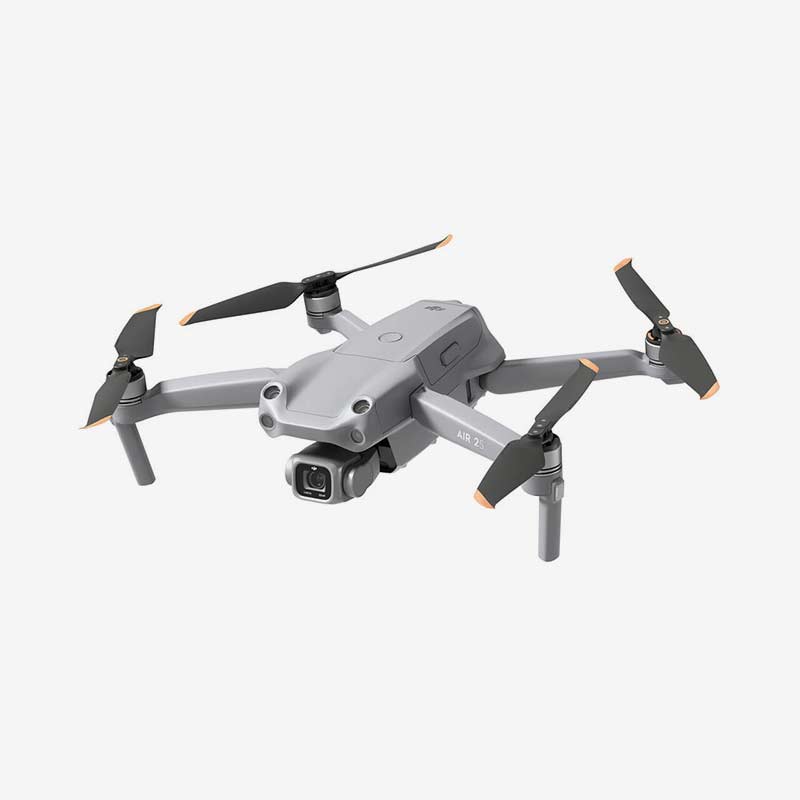
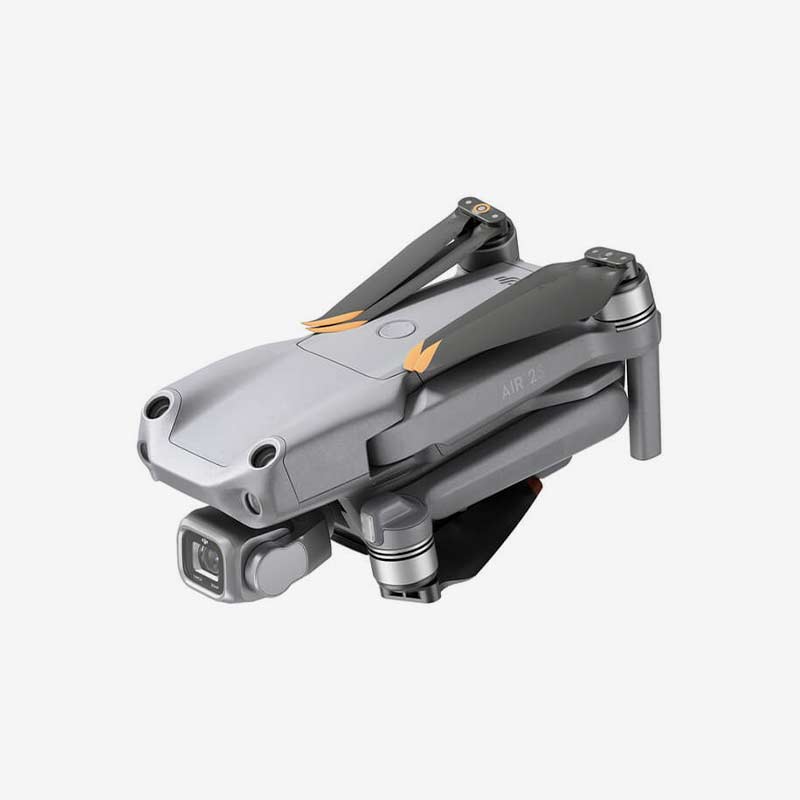
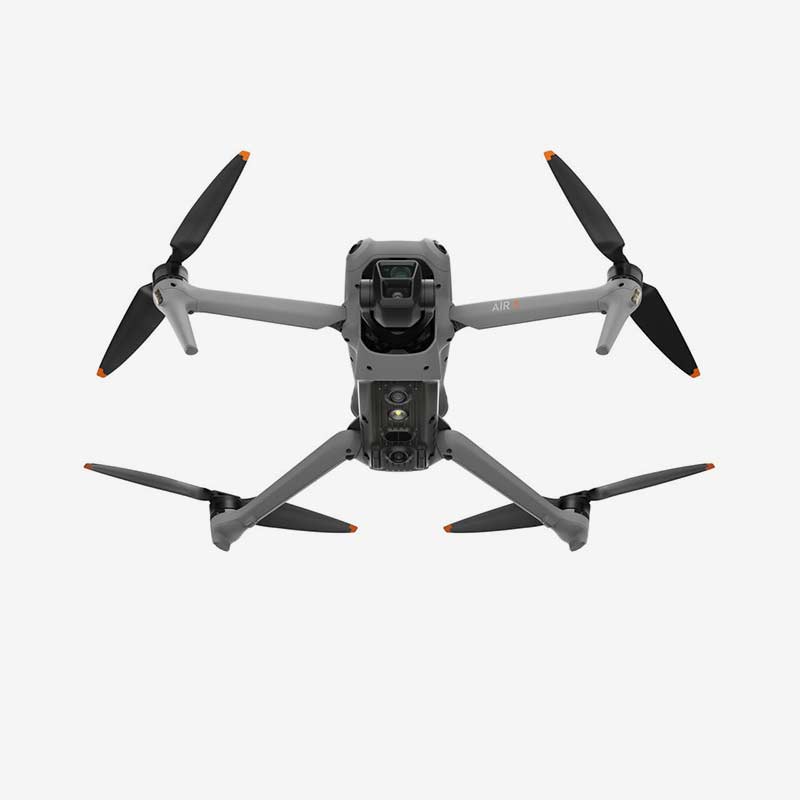
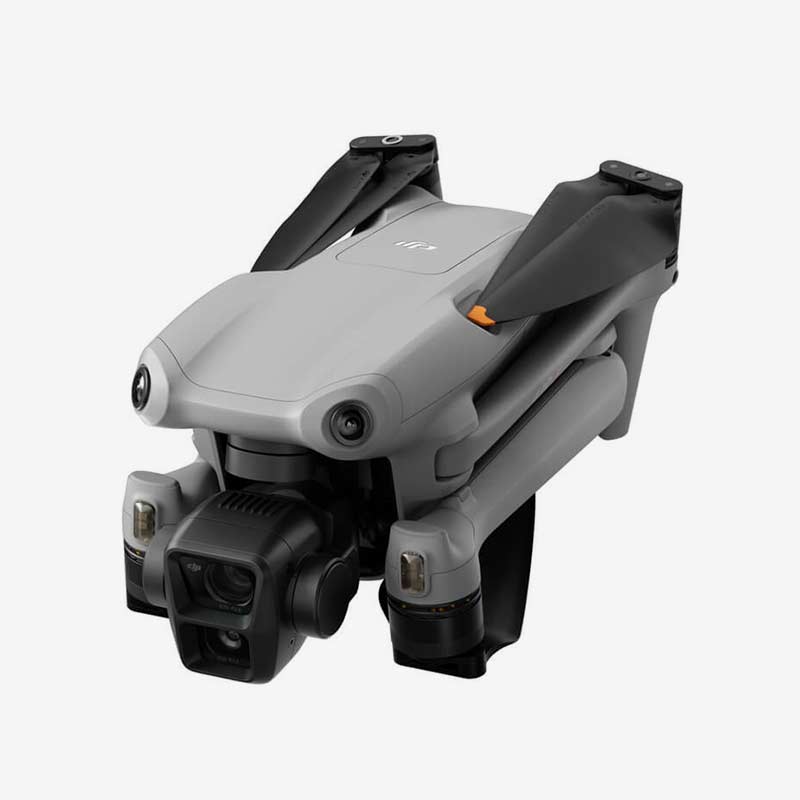
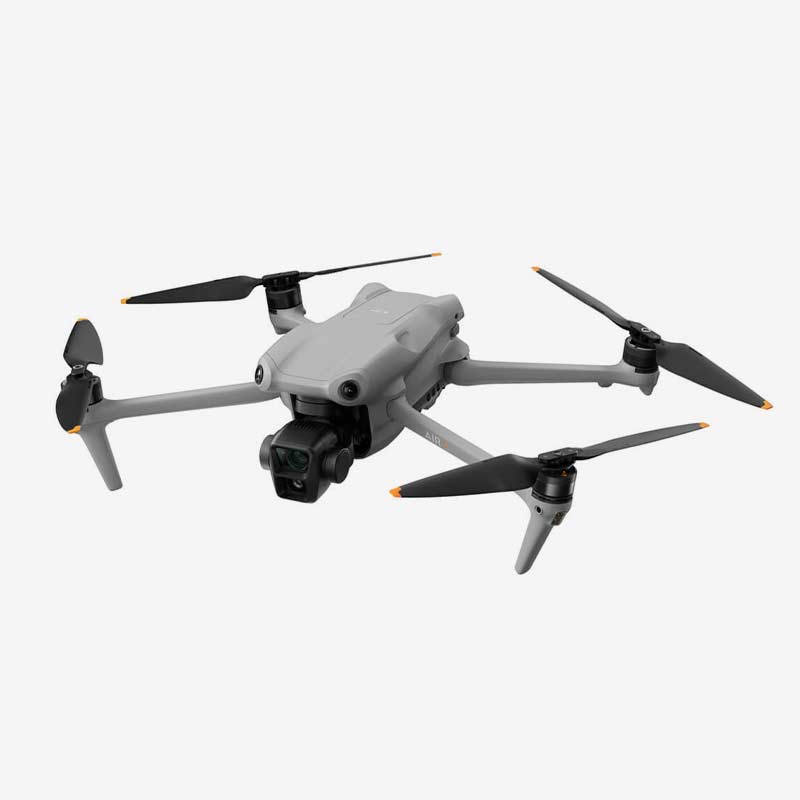
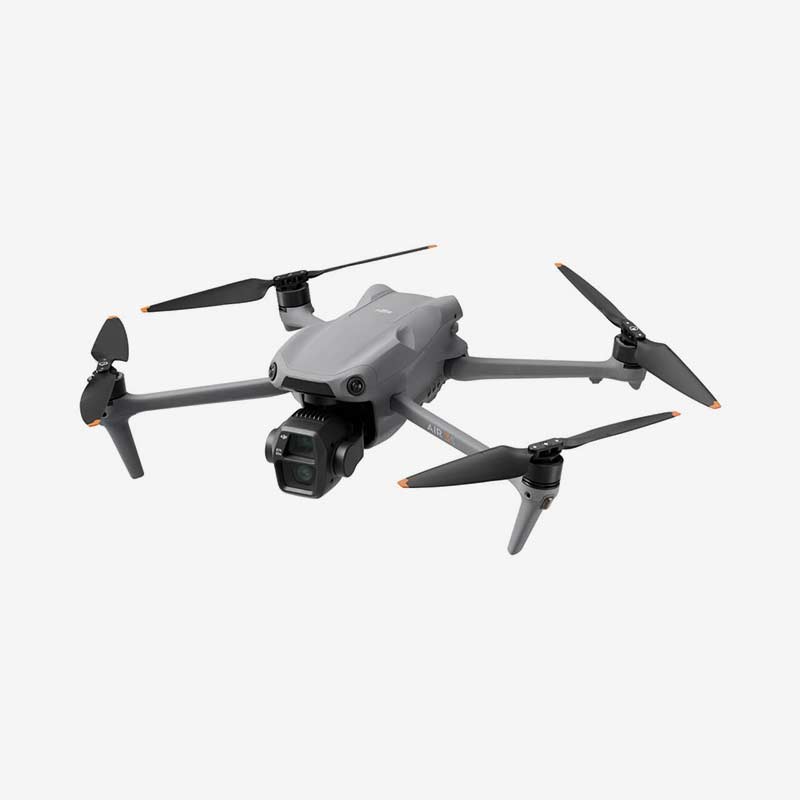
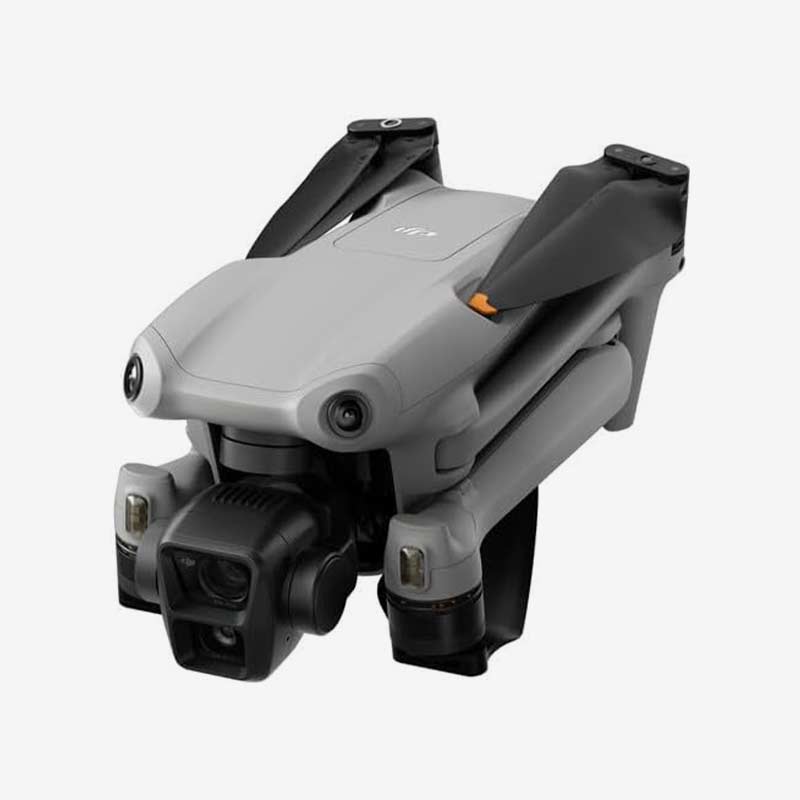

Reviews
There are no reviews yet.